Mathematics
PHPPS Mathematics Department
The overall objective of the Mathematics curriculum centres on mathematical problem solving. Pupils will acquire mathematical concepts and skills through varied learning experiences, and apply them to solving problems in Mathematics. These learning experiences help to develop cognitive and metacognitive skills, with an emphasis on positive attitudes towards learning Mathematics. In PHPPS, Mathematics teachers build numeracy skills in all our pupils and equip them with content mastery. This will provide them with the foundation necessary for further learning of Mathematics.
Pupils engage in experiential learning in classrooms through various hands-on activities. These learning experiences focus on the mathematical processes and skills that are integral parts of learning for that topic.
| Pictures of students using manipulatives | |
|---|---|
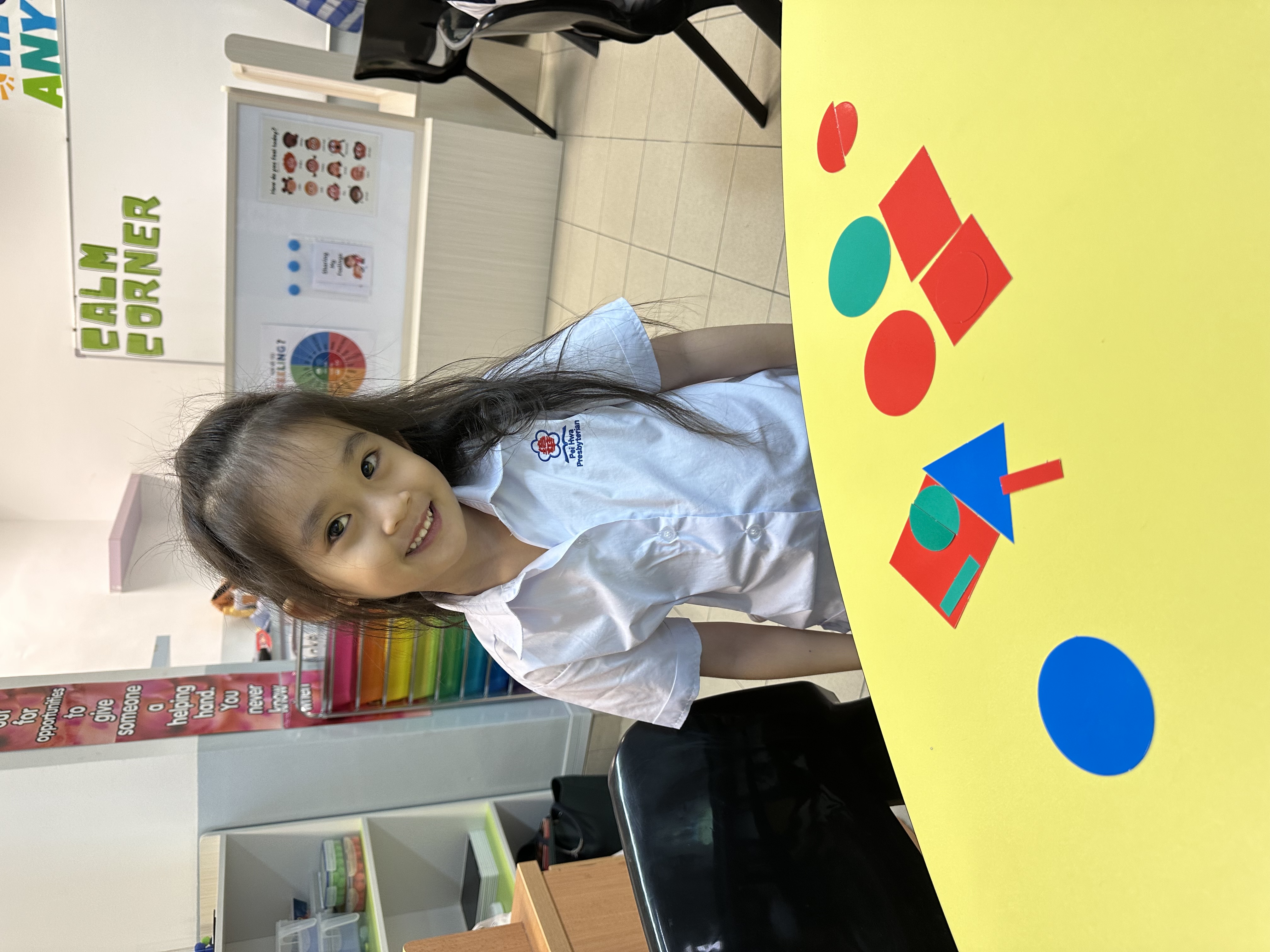 |
Student exploring the use of shapes to tell a story |
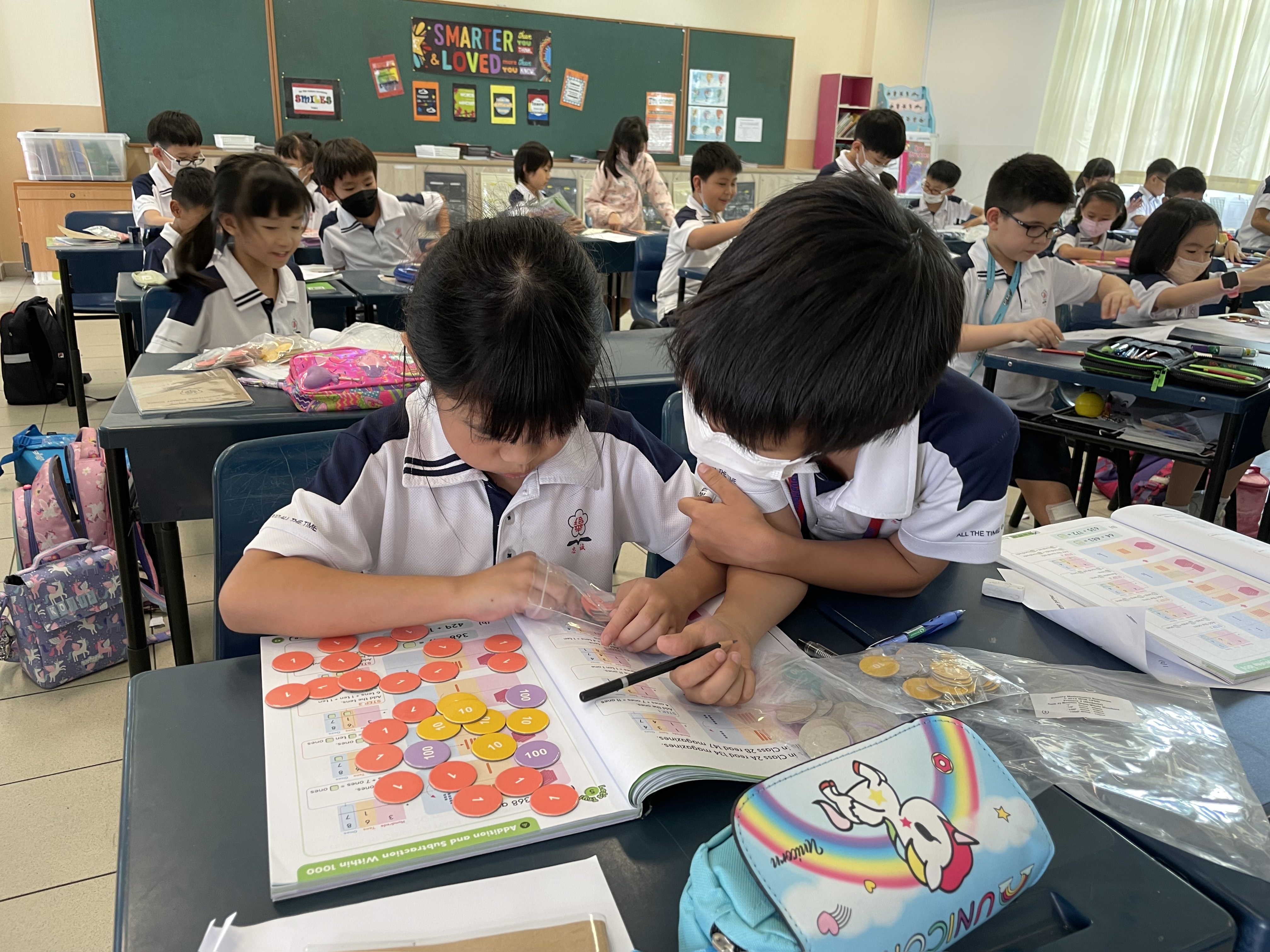 |
A pair of students using money discs to represent and check their understanding. |
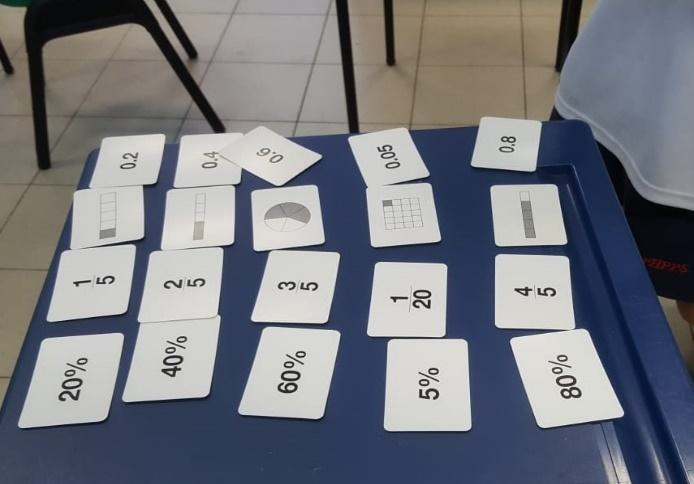 |
Pupils put their newly acquired knowledge on conversion to test by matching different cards. |
Learning of Mathematics in PHPPS is not limited to books and worksheets.
Students in PHPPS are also given opportunities to learn Mathematics through the use of technology. Being digital natives, students can integrate technology with ease in their learning, increasing their engagement levels and interest in learning Mathematics.
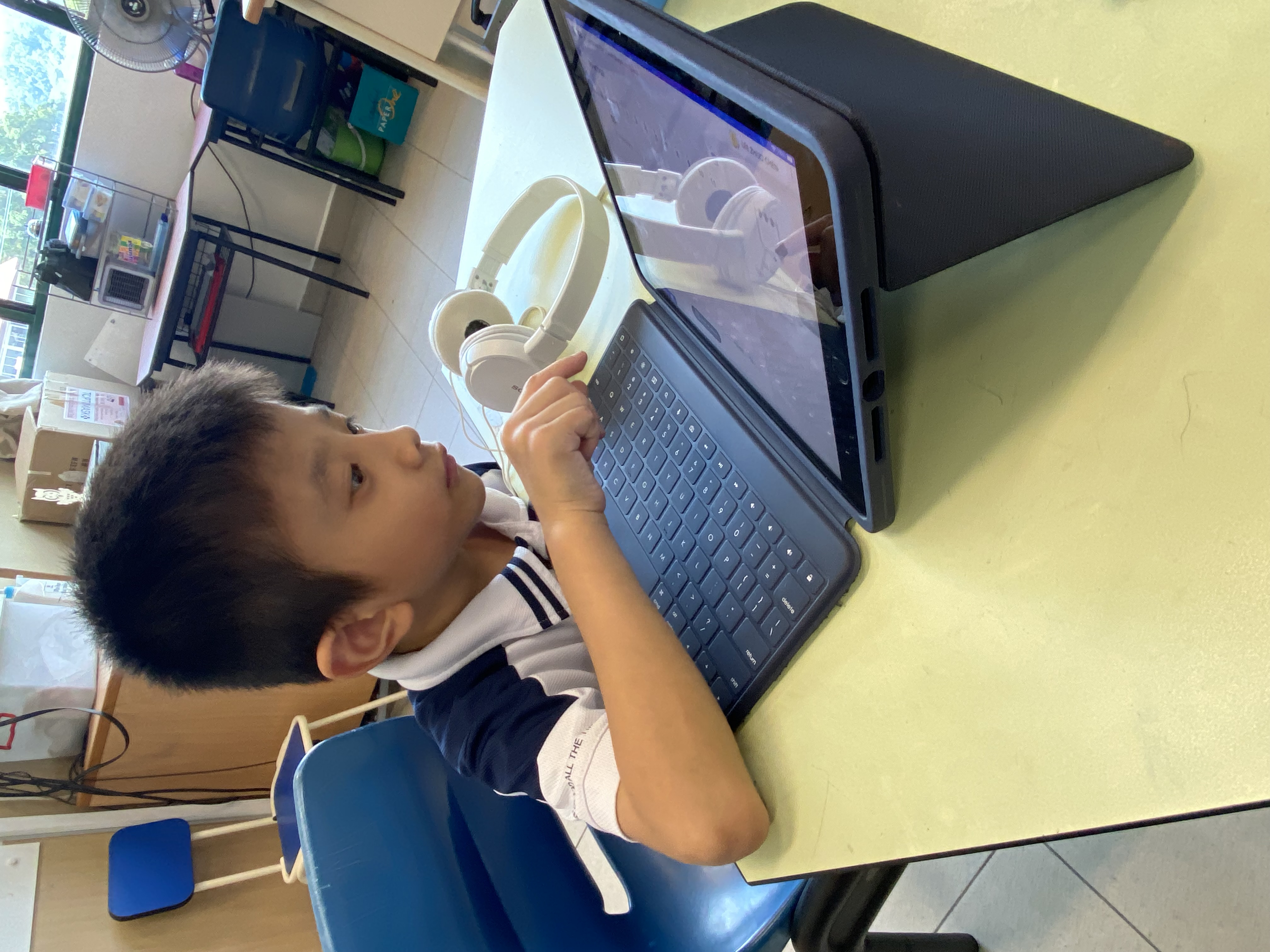 |
A student extending his learning of a math concept through the use of online manipulatives |
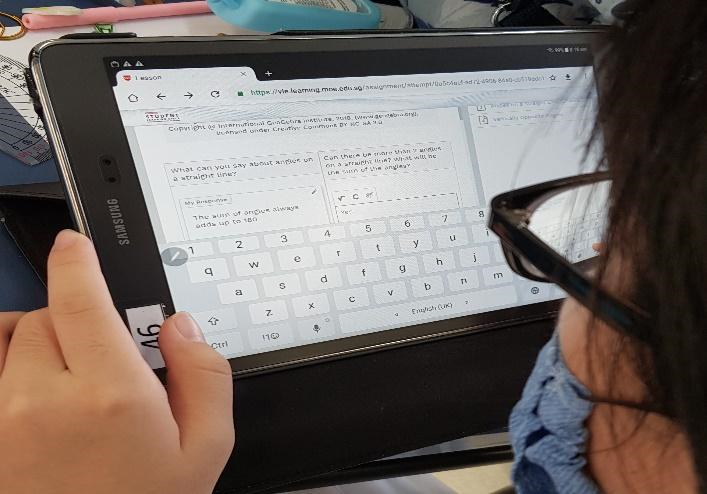 |
A meaningful discussion of the new concept introduced on Student Learning Space (SLS). |
Students can explore mathematical concepts through online manipulatives, discuss their findings individually or as a group through the Interactive Thinking Tool in Student Learning Space (SLS) and receive feedback for quizzes set to check their understanding.
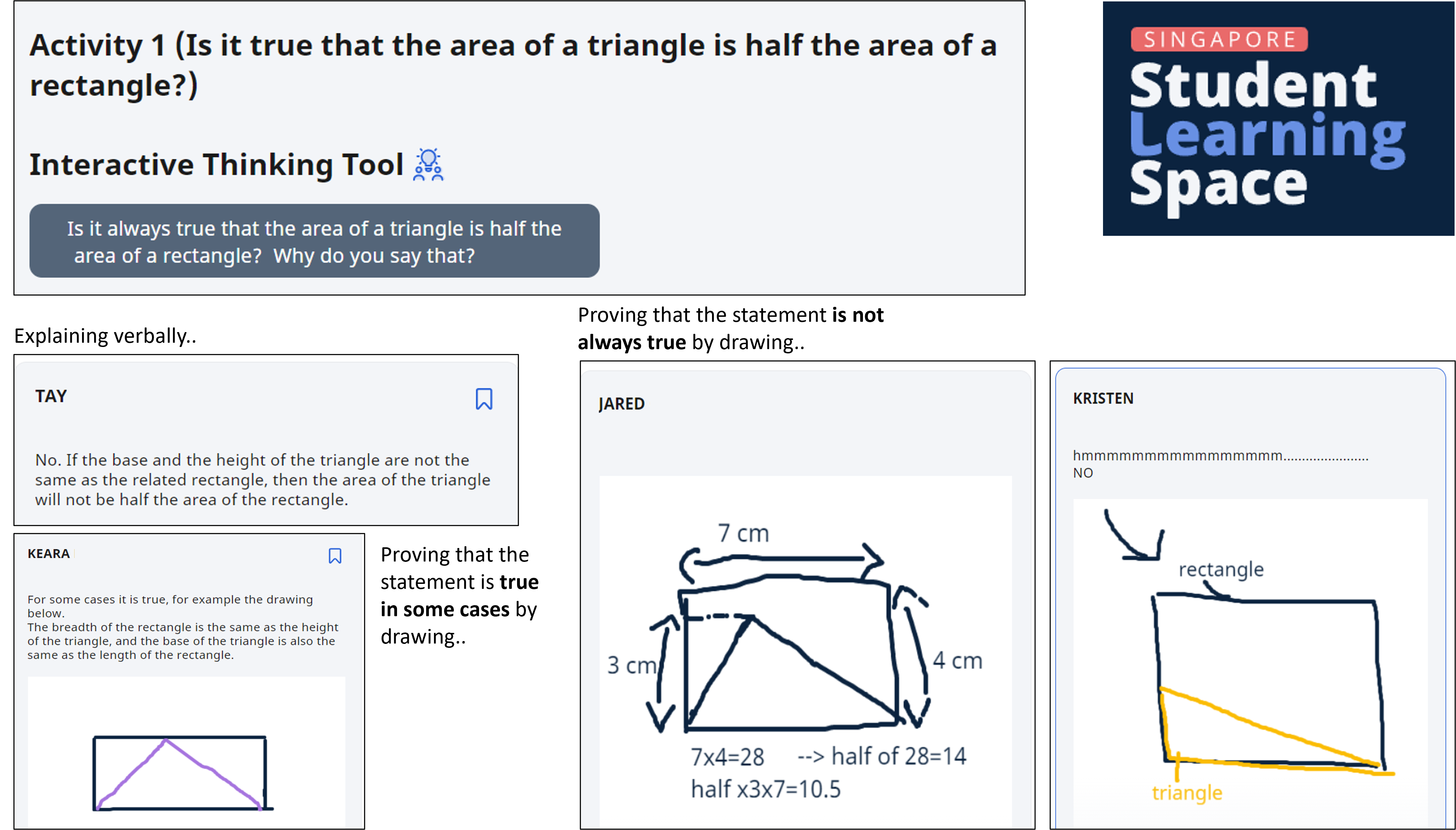 |
Excerpt from a Primary 5 discussion on the concept of Area of Triangles through the Interactive Thinking Tool (ITT) in Student Learning Space (SLS) |
The use of technology in the classroom also allows students to go through the materials at their own pace before the teacher reinforces the learning in the classrooms.
Tapping on the affordances of technology not only enhances learning experiences for the students, but also helps prepare our young minds for the rapidly changing, highly technological world.
Growth Mindset
Even as students are exposed to real-life applications of Mathematics through the different school programmes, we continue to promote a Growth Mindset as a central part of the Math Curriculum and through it accompany students as they grow their love for Mathematics.
To achieve this, we provide our pupils with feedback to encourage them when they show determination in solving math questions. This is done through a feedback section in students’ math worksheets where teachers get to encourage them along their journey. Students are also able to share with their Math Teachers about their readiness for learning through the Math Growth Mindset ruler. These create opportunities for our pupils to think, talk about and inspire others to overcome their challenges.
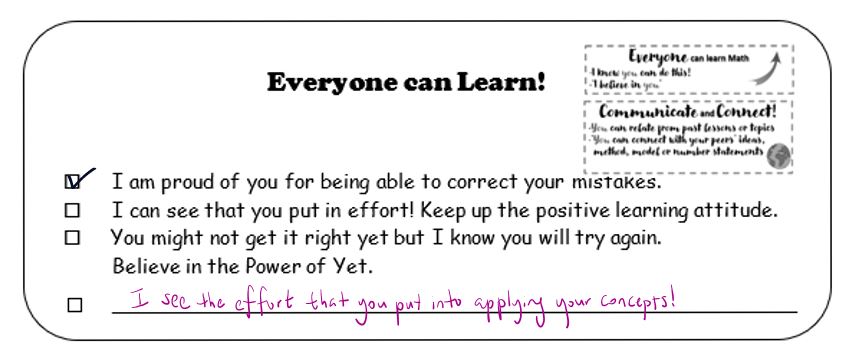 |
Students receive feedback on their progress from their teachers after they complete a school worksheet. |
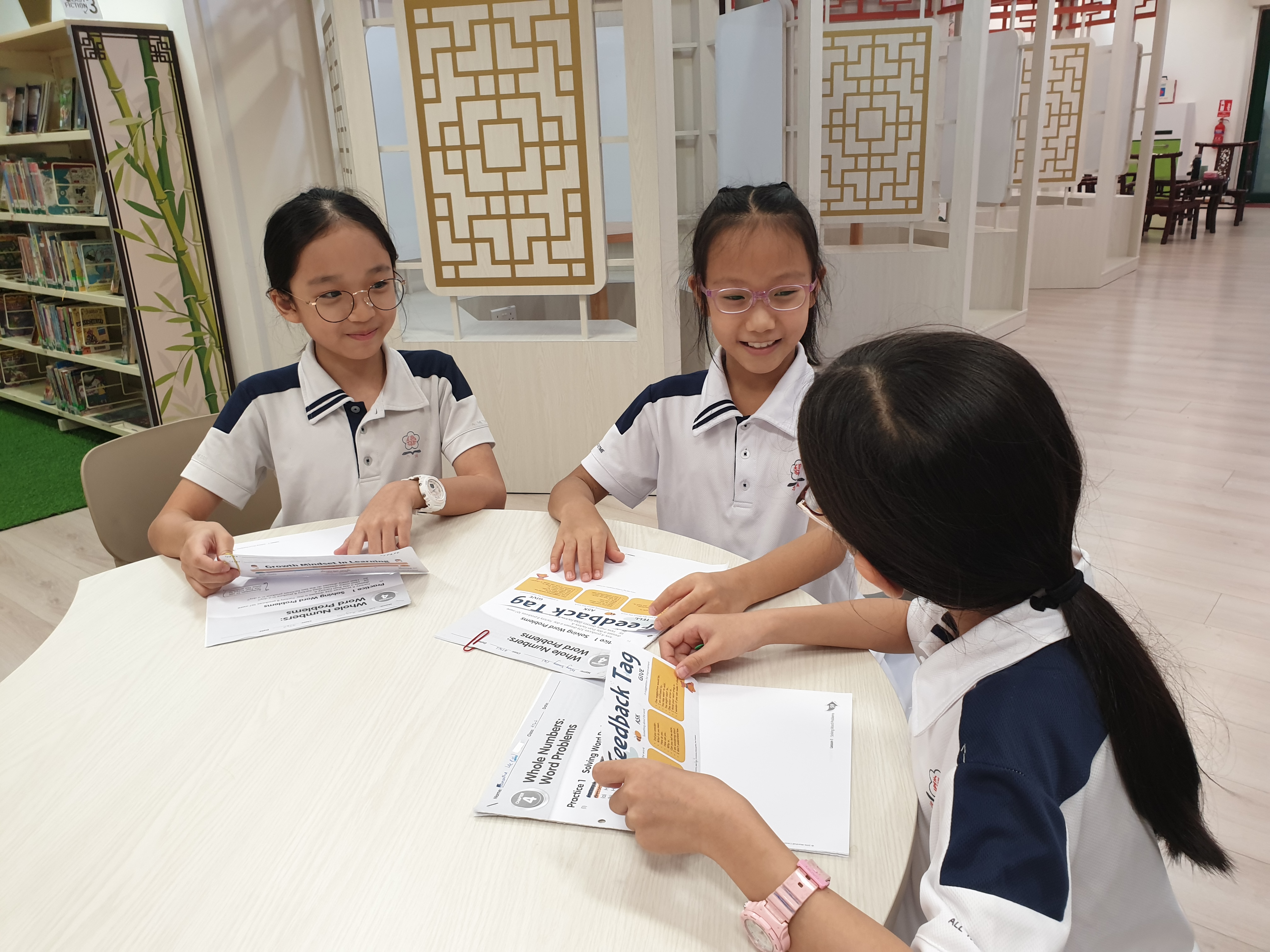 |
A group of students using the Growth Mindset Ruler and Feedback TAG (Tell me something you like, Ask a question, Give a positive suggestion) to support the learning of their peers. |
Department Signature Programmes
There are programmes planned for students to spark their interest in the subject as well as to allow them to see the relevance of what they are learning in the real world. These are some of the mathematics programmes in PHPPS:
Math Trail
During the Math Trail, our P1 & P2 students explore the school compound to complete math tasks at the various stations. The tasks are designed to draw students’ attention to real-life applications of the concepts learnt. Through this trail, an atmosphere of adventure is created for students to uncover connections between Mathematics and the school’s surroundings. Apart from instilling the joy of learning in students, they work together in groups to solve problems. This reinforces on the school values of Teamwork and Resilience. Students learn to appreciate teamwork and work together to complete the activities
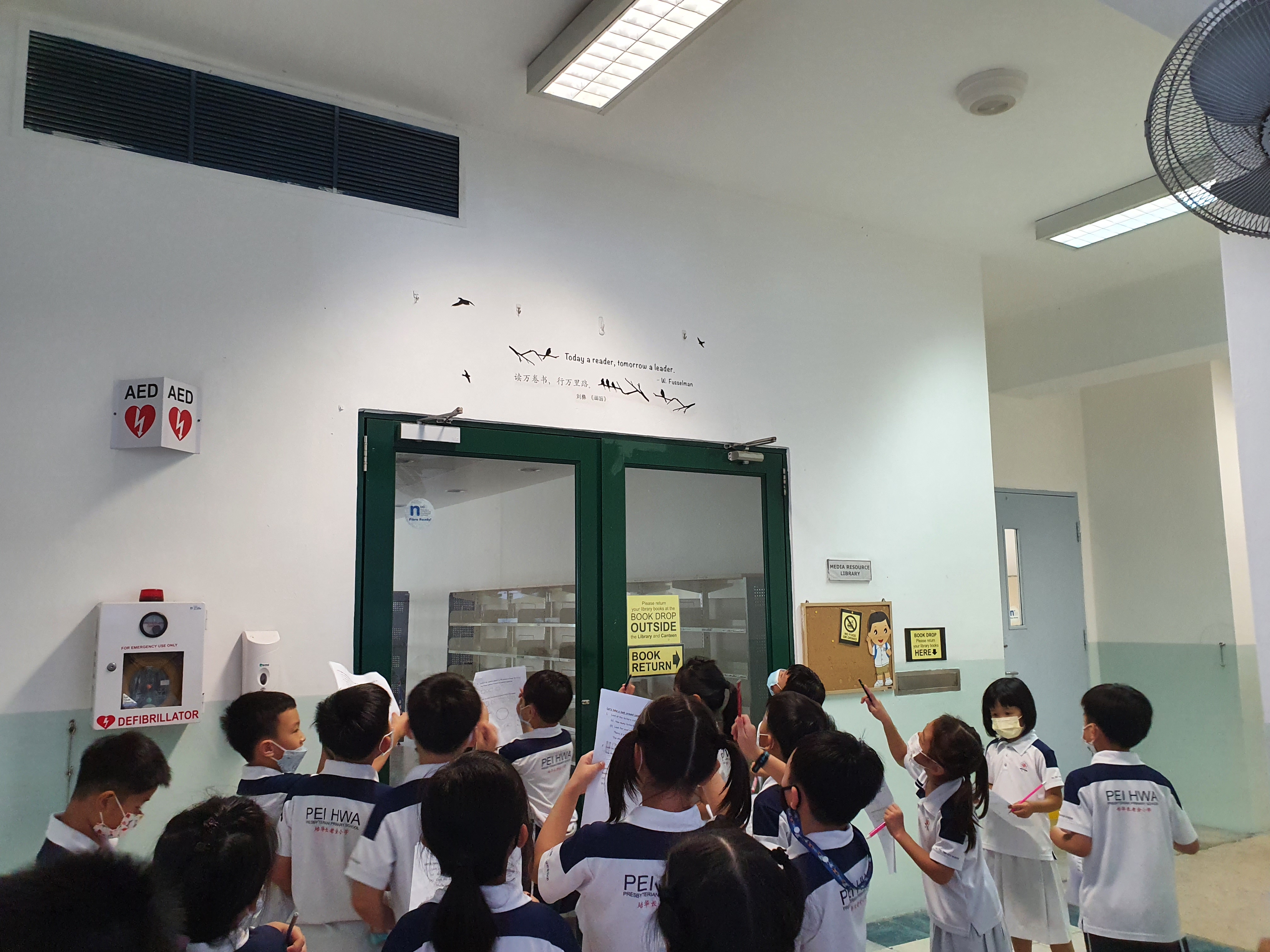 |
Students looked around outside the library to find the answer to the given task. |
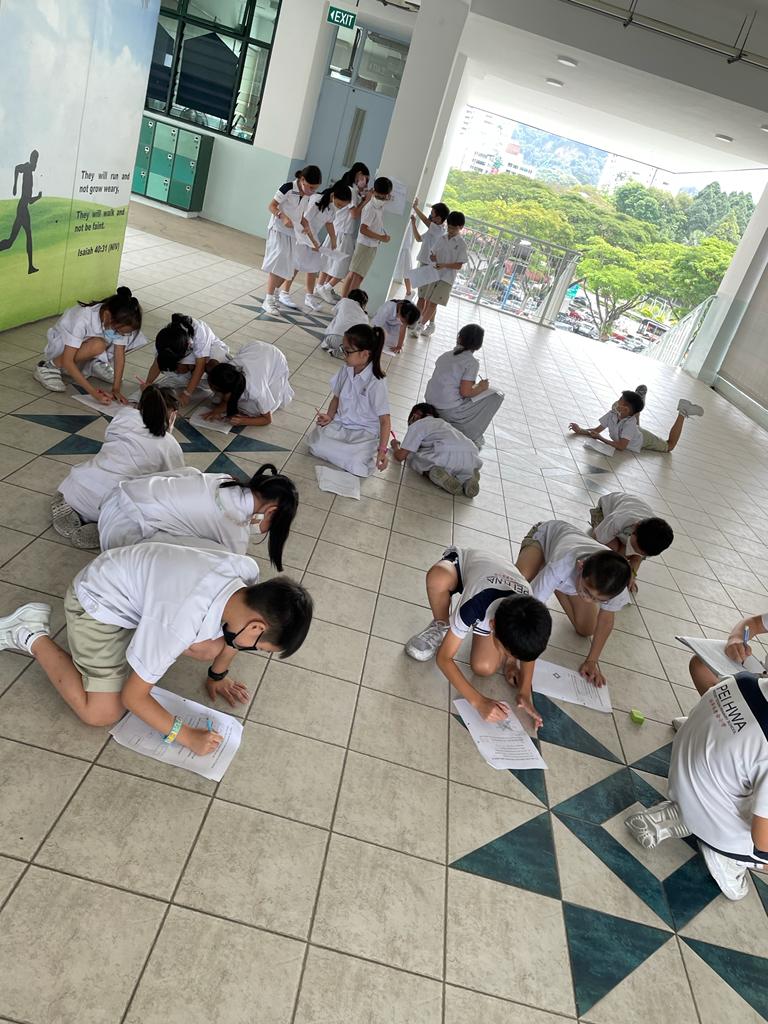 |
Students recorded their findings at one of the stops. |
Math Week
Every year, a week in Term 1 or 2 is dedicated for Maths Week for the students to have fun. Students are exposed to different themes to explore and discover Mathematics around them. Past themes include ‘The Mathematician in me’ and ‘Math around us’.
Students are able to take part in various themed activities with their peers, allowing them to have fun learning Math together through poster design, augmented reality hunts and math performances.
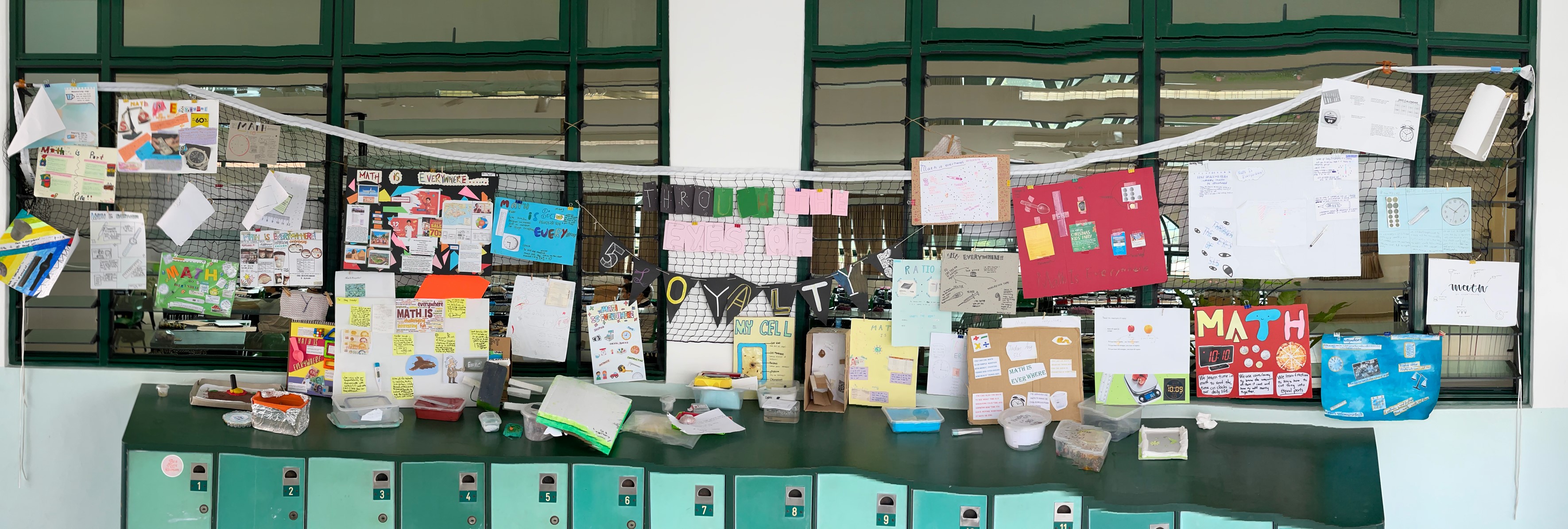 |
Students shared how they saw Math through their own eyes, with their collated works displayed outside their classrooms |
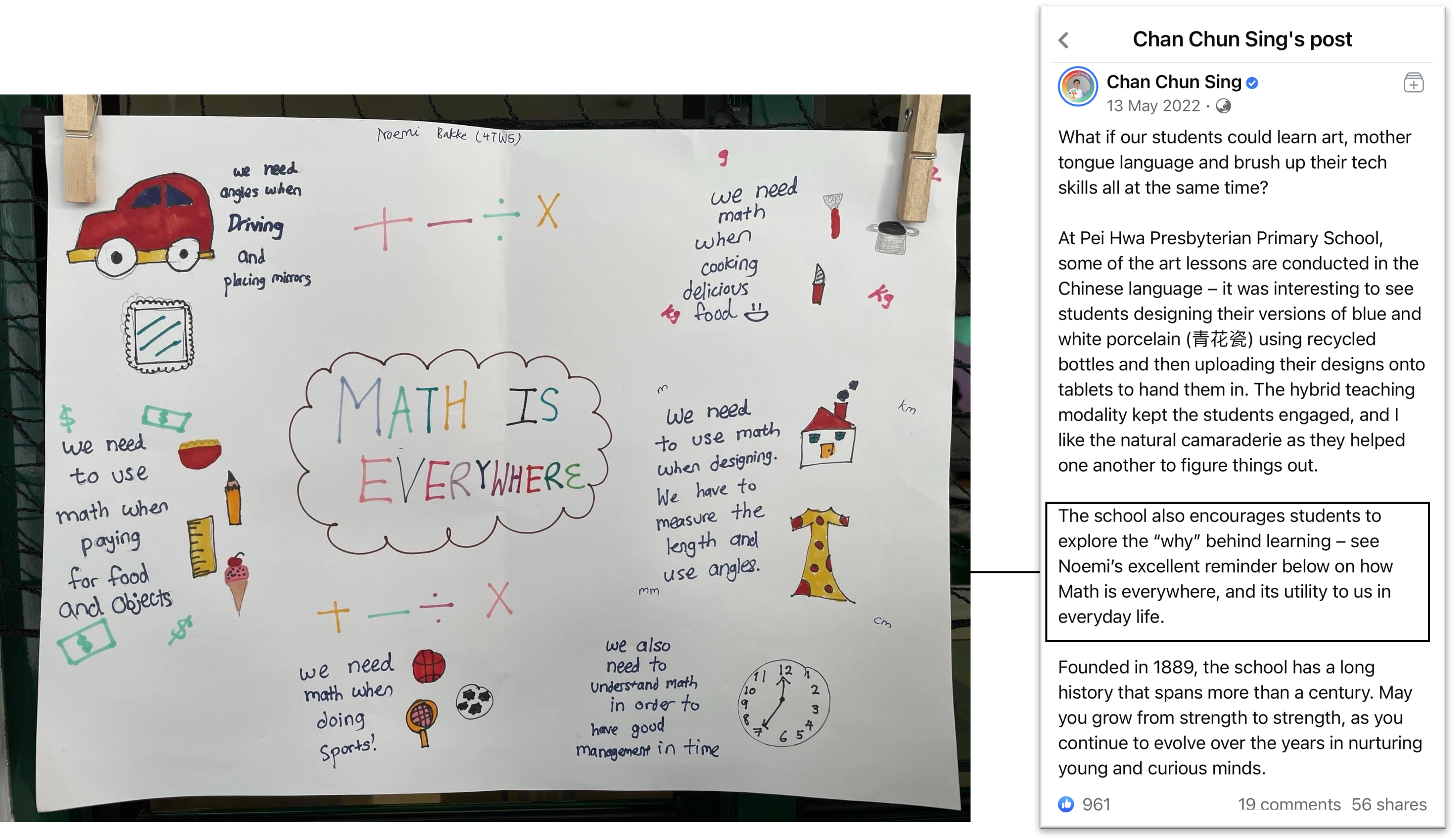 |
Minister for Education Mr Chan Chun Sing posted on one of our student’s sharing for Math Week when he visited our school! |
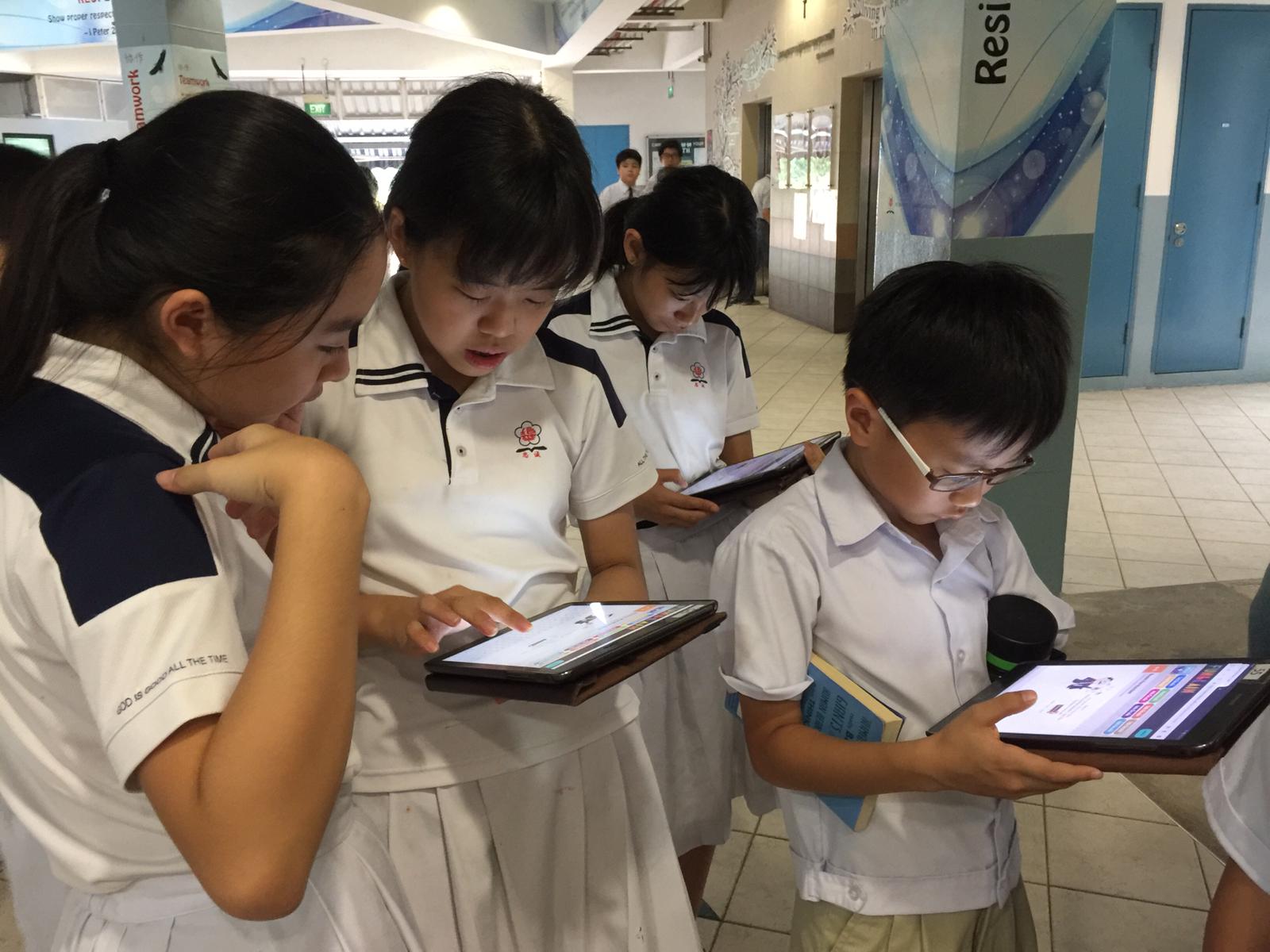 |
Students enjoying the use of new technology to explore their school grounds and solve math problems |
During Math Week, opportunities are also given to our math leaders to take charge in our classroom and recess activities. They are empowered to lead assembly programmes and share more about the year’s theme to their schoolmates.
| | |
| ——– | ——– |
| 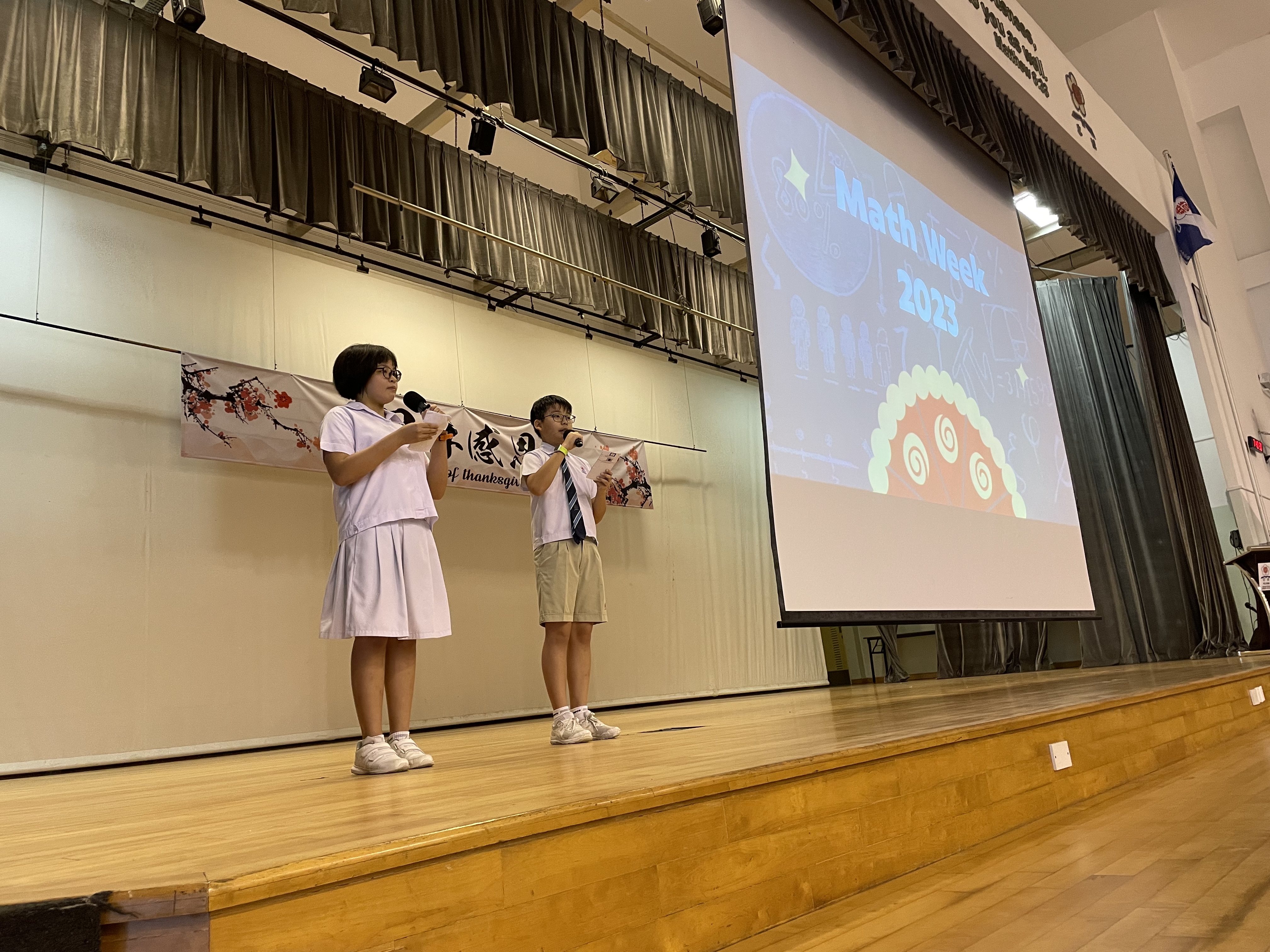 |Math Leaders bringing their joy for math on stage - emceeing for Math Week Assembly programme |
| | |
|Math Leaders bringing their joy for math on stage - emceeing for Math Week Assembly programme |
| | |
5 MINDS For the Future
In alignment with our school’s initiative to develop pupils to thrive in the Volatile, Uncertain, Complex and Ambiguous (VUCA) world, the Mathematics department has embarked on Howard Gardner’s ‘5 Minds for the Future’ for our P3 to P6 pupils. Going beyond their classroom problem-solving routines, pupils are exposed to the application of Mathematics in the real-world context while engaging the 5 Minds in various problem-solving processes.
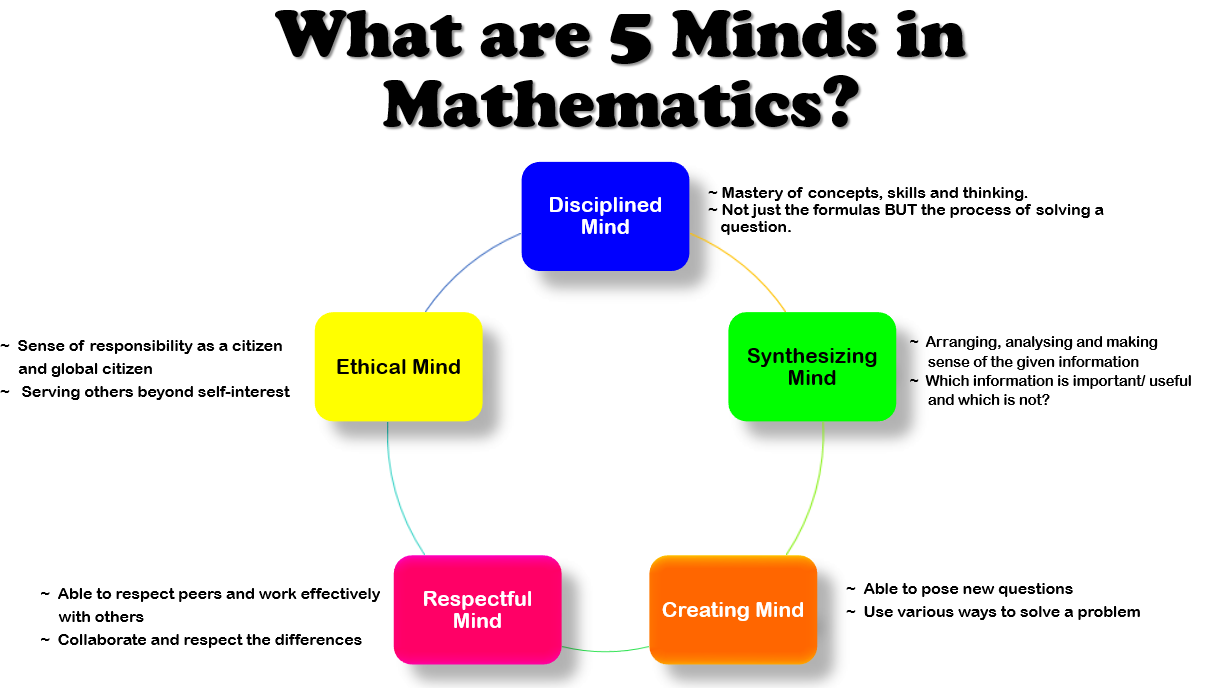
With the deployment of appropriate thinking routines for Mathematics, the lessons focus on promoting a deeper understanding and appreciation of the foundational mathematical concepts as well as that in the application of Mathematics in the complex world. It helps pupils make sense of their learning and better relate their knowledge and its application to real-life experiences.
These are the topics selected for the P3 to P6 students:
| Levels | Focus of 5 Minds Task |
|---|---|
| P3 | Area , Perimeter , Graphs |
| P4 | Angles , Time |
| P5 | Percentage , Rate |
| P6 | Graphs , Percentage |
Useful Online Resources for Mathematics
1 → Primary school mathematics syllabus
2 → Approved Calculator list for use in Primary 5 and Primary 6. Guidelines_calculators.pdf
3 → SLS : https://vle.learning.moe.edu.sg/login
4 → PSLE information for Mathematics : https://www.seab.gov.sg/home/examinations/psle

